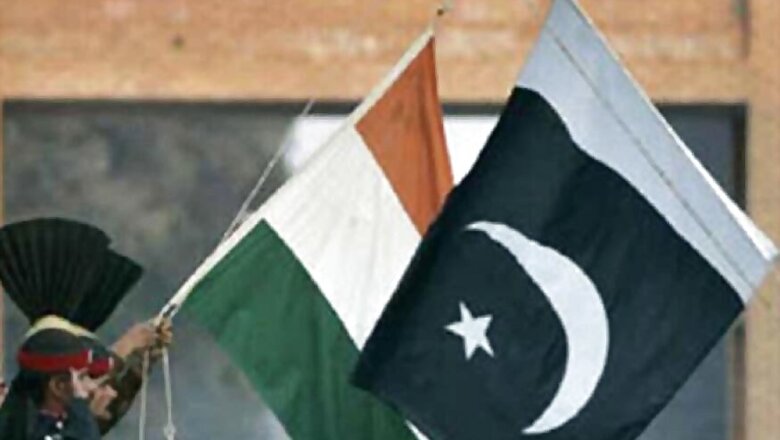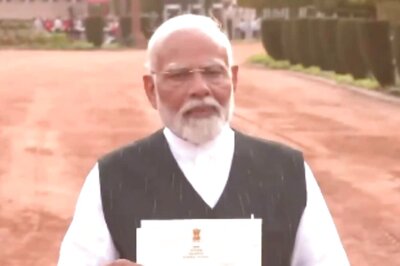
views
New Delhi: Pakistan has asked India to allow its officials to undertake a tour for inspecting Indian projects in the Indus river basin, which New Delhi said will be arranged in line with the provisions of the Indus Waters Treaty (IWT), according to government sources.
Pakistan made the request during the two-day meeting of the Permanent Indus Commission (PIC) between the two countries here.
The last time a Pakistani team of officials visited the Indus river basin in India was in 2014.
The sources said both the countries stuck to their respective positions over India's two hydropower projects Pakal Dul and Lower Kalnai, both in Jammu and Kashmir, during the 114th PIC meet.
Pakistan has been raising objections over the designs of Pakal Dul (1000 MW) and Lower Kalnai (48 MW) projects -- located in the Chenab basin in Jammu and Kashmir -- contending that they violate the IWT, signed in 1960. On the other hand, India has been maintaining that the designs of the projects are very much in line with the provisions of the water sharing pact.
The sources maintained that the discussions took place in a cordial manner during the meeting, which took place in the backdrop of the continuing tension between the two countries.
India's Indus water commissioner P K Saxena, technical experts and a representative of the Ministry of External Affairs took part in meeting as part of the Indian delegation. Pakistan's six-member delegation was led by Syed Muhammad Mehar Ali Shah.
Pakistan has requested for a general tour of inspection of various projects on Indus basin rivers. And India will consider that and arrange it in line with the provisions of the IWT, a source said.
India had arranged a tour of the Pakistani officials to sites of Pakal Dul and Lower Kalnai projects after the neighbouring country requested so in 2014, the sources said.
So far, 118 such tours have been made by both sides. Out of which, 70 tours were arranged on the Indian side and the rest 48 in Pakistan.
The sources further said that while Pakistan's objections regarding the two hydro electric projects were discussed by the two sides during the meeting, the issues concerning another of Indian project, Ratle (850 MW) -- located in Jammu and Kashmir -- were not deliberated upon.
India, sources said, had offered the Pakistan delegation discussion on Ratle, whose design Islamabad has been objecting to. But the delegation did not accept the offer, saying the issue is already being discussed at higher level than the Commission, that is, at the secretary-level.
India is always open to discussions. As a responsible state, India always takes care of the apprehensions of the lower riparian state (here Pakistan), the source said.
The PIC is an established mechanism under the IWT, which mandates it to establish and maintain cooperative arrangements for the implementation of the water distribution pact and to promote cooperation between the two sides in the development of the Indus water systems.
The IWT covers the water distribution and sharing rights of six rivers -- Beas, Ravi, Sutlej, Indus, Chenab and Jhelum.
The treaty specifies that waters from the three western rivers -- Indus, Jhelum and Chenab -- are reserved for Pakistan, while waters from eastern rivers -- Ravi, Sutlej and Beas -- are for reserved for India.
The PIC had last met in March 2017 in Islamabad. The meeting of the PIC is held alternately in India and Pakistan at least once every year as mandated by the treaty.




















Comments
0 comment